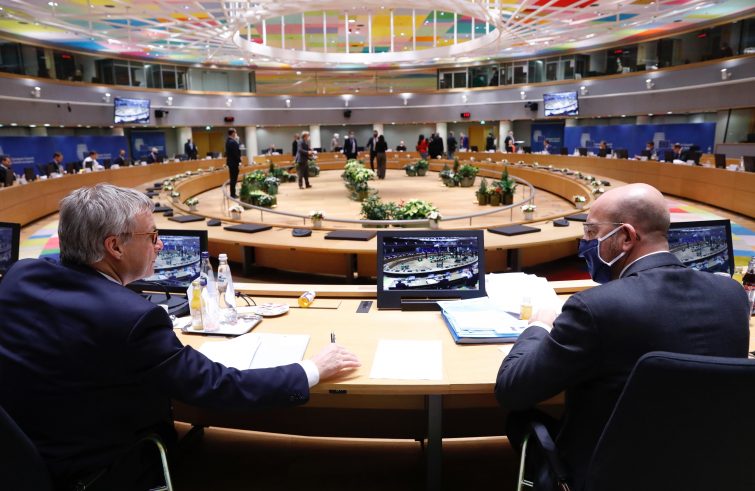
Coordination, responsibility, innovation, stability. These four criteria are deemed most relevant by Brussels with regard to the pandemic response. Among the many problems it caused (contagions, victims, healthcare emergencies, economic recession, unemployment, social crisis…), COVID-19 highlighted the importance for EU Member States to act in unison: and the teachings of Don Lorenzo Milani – “the preferential policy is to overcome problems together” – have seemingly gained ground amongst all 27 capitals and Brussels.” Next January 21 the President of the European Council, Charles Michel, will be chairing yet another videoconference with Heads of State and Government on coronavirus coordination.
A further step for the definition of shared solutions:
The EU’s Multiannual Financial Framework and Next Generation EU ( along with ECB and EIB interventions, the decision to suspend the Stability and Growth Pact, plus ESM and SURE) are unlikely to remedy all the problems, but they will certainly be a contribution to economic recovery, a boost to businesses and families, with much-needed funds to accelerate the pace towards the Green Deal and digital development. Hence short-term interventions, combined with long-term reforms aimed at enhancing the “quality” of the single market and economic systems, as well as citizens’ lives.
But this requires coordination, responsibility, innovation and stability. Thus Italy’s potential government crisis – the Country is set to receive the largest share of EU recovery money, amounting to €209 billion – is seen as rather inappropriate in EU institutions. Indeed, even in other European capitals.
At a time when political decision-making is expected to deliver concrete solutions, no European country would dare consider sparking off a government crisis, let alone contemplate national elections.
Not even the UK, where grounds for Boris Johnson’s removal from Number 10 in Downing Street surfaced within his very Party, only to eventually recognize that a Country hit by recession, by Brexit, and by COVID-19, needs anything but a government debacle. Indeed, the agreement reached during last December’s European Council with Poland and Hungary (objecting to making EU funds conditional on respect for the rule of law and democratic standards, as outlined in the EU Treaties) appeared to be aimed at avoiding a political clash that would have stalled the Multiannual Financial Framework and Next Generation EU.
Moreover, local elections have been rescheduled in some countries, with the aim of preventing citizens from being exposed to a dangerous election campaign – in terms of public health. In this respect there are growing concerns in Germany over next September’s parliamentary elections. The powerful statements made by the President of the Republic, Sergio Mattarella (“This is a time for builders” – year-end address) and by Pope Francis (“At this moment the entire ruling class does not have the right to say ‘I’. It must say We and seek unity in the face of the crisis. […] This is a time for peace, nor for crisis, we must sow seeds of common good”; TG5 special newscast), resounded also in Brussels.
In an interview with Italian newspaper “Il Giornale” (January 11), even Silvio Berlusconi, a government opposition leader, called for a sense of responsibility, emphasizing the extreme practical difficulties of going to the polls, with an electoral campaign jeopardized by the current pandemic situation.
The European “recovery plan” must be taken seriously
with comprehensive projects submitted to the EU Commission, mobilizing all the potential energies of the country to tackle the emergency situation, while laying the foundations of the post-coronavirus “rebirth.” A parliamentary crisis in the dark, involving a risky political and decision-making stalemate, would be very hard to explain to the EU and to other Member States – as well as to Italian citizens. In Italy, as in Europe, “builders” are needed and everyone, whether majority or opposition, citizens or businesses, is asked to do their part having a good head on their shoulders.









